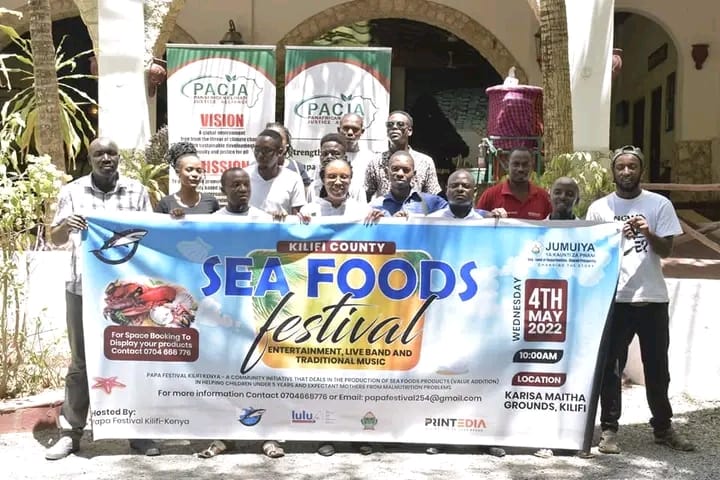Kilifi fishermen call for protection of sharks as demand for fins rises

Shark fin soup is a delicacy in countries like China and Vietnam, where it is often served at weddings and banquets, further fuelling the demand.
The rising international demand for shark fin soup is placing Kilifi’s shark populations at risk and jeopardising the livelihoods of local fishermen, prompting urgent calls for government action.
Fishermen are advocating for the protection of sharks and the introduction of value-added opportunities that could benefit their communities. With millions of sharks being killed annually for their fins which are sold at high prices overseas, local fishermen are stressing the need for stricter regulations.
More To Read
- Global fishing subsidy ban kicks in after Kenya, Brazil, Tonga and Vietnam ratify agreement
- Kilifi fisherfolk demand direct access to fishing gear, decry unfair distribution by local leaders
- Kenya’s fish export earnings drop to Sh5.97bn in first decline in four years
- Alarm as wildlife populations decline by 73 per cent due to climate change
- MPs question how state spent Sh1.6 billion to count fish in Indian Ocean
Fishermen in Kilifi are particularly concerned about the use of illegal fishing gear, which leads to sharks being captured, their fins removed, and the fish left to perish in the sea. They argue that a legal framework to govern the trade is crucial, not only to conserve shark populations but also to ensure the sustainability of coastal communities that rely on fishing.
Speaking in Kilifi town, shark value addition expert Francis Thoya highlighted the destructive impact of the global shark fin trade.
“The demand for shark fin soup abroad is pushing these species towards extinction. Every year, millions of sharks are killed for their fins. If this continues unchecked, we risk losing these species altogether,” he said.
Thoya explained that many sharks are caught using illegal methods, with their fins brutally removed before they are discarded back into the ocean to die.
Create awareness
“The government must intervene by creating awareness and regulating the practice. If nothing is done, future generations may only learn about sharks in books,” he warned.
He noted shark fin soup remains a delicacy in countries such as China and Vietnam, where it is often served at weddings and banquets, further fuelling the demand.
According to him, dried shark fins are sold at premium prices, providing strong incentives for the illegal trade.
Kiti Mwasaha, a fisherman from Shee-Khamis, called for sharks to be included on the list of endangered species, underscoring the urgency of the situation.
“The precarious state of our sharks reflects the broader threats facing Kenya’s marine ecosystem. Protecting these species must be a priority if we want to maintain our potential as a maritime nation,” he stated.
Mwasaha suggested that long-term recovery for shark populations could be achieved by expanding marine protected areas, restoring habitats, and implementing shark-excluder devices on fishing vessels.
Fishmonger Remi Abdi emphasised the importance of stakeholder collaboration in developing policies to safeguard sharks.
“The survival of our coastal communities depends on a healthy marine environment, and conserving sharks is part of that. We need comprehensive, research-driven strategies to keep these ocean giants off the endangered species list,” Abdi said.
Fishermen have urged the national government to create policies that will regulate shark fin trafficking and protect Kenya’s marine biodiversity.
Top Stories Today














































